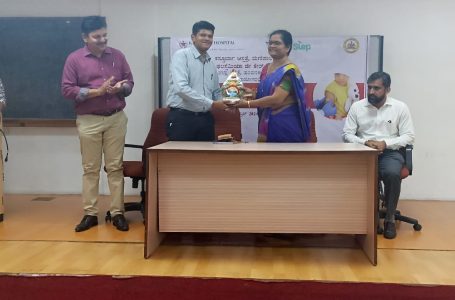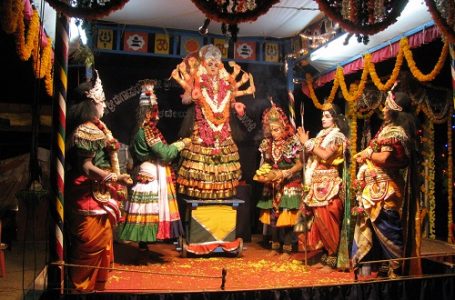Deputy Commissioner issues guidelines for Dakshina Kannada lockdown

Mangaluru, July 15: Dakshina Kannada district Deputy Commissioner Sindhu B Rupesh has issued guidelines for Lockdown that would come into force in the district from 8 pm of July 15:
2. Offices of the State Government and their Autonomous Bodies, Corporations, etc. shall remain closed. Exceptions (outside containment zone):
a. Health, Medical Education, Police, Home Guards, Civil Defence, Fire and Emergency Services, Disaster Management, Mangaluru City Corporation, and Prisons.
b. All offices operating and maintaining essential services such as Electricity, Water, Sanitation, etc.
c. Mangaluru City Corporation and Subordinate Offices.
d. Courts and Offices related to judicial work shall operate as per the existing guidelines issued by the Hon ‘ble High Court.
e. All Offices, Officers, staff deputed for COVID related work.
f. Treasury offices.
b. All offices operating and maintaining essential services such as Electricity, Water, Sanitation, etc.
c. Mangaluru City Corporation and Subordinate Offices.
d. Courts and Offices related to judicial work shall operate as per the existing guidelines issued by the Hon ‘ble High Court.
e. All Offices, Officers, staff deputed for COVID related work.
f. Treasury offices.
3. Offices of the Government of India, its Autonomous/ Subordinate
Offices and Public Corporations shall remain closed. Exceptions (outside containment zone):
a. Defence, Defence PSUs, central armed police forces, and Telecommunication.
b. Offices operating and maintaining essential services.
c. Treasury (including, Pay & Accounts Offices, Financial Advisers and field offices of the Controller General of Accounts, with bare minimum staff).
d. Public utilities (including petroleum, CNG, LPG, PNG), power generation and transmission units, post offices, Disaster management and Early Warning Agencies.
e. National Informatics Centre.
f. Customs clearance at airports/land border, GSTN; and MCA 21 Registry with bare minimum staff.
g. Banks, Reserve Bank of India and RBI regulated financial markets and entities like NPCI, CCIL, payment system operators and standalone primary dealers with bare minimum staff.
4. All health Services(including AVUSH and Veterinary Hospitals) to remain functional, such as: (outside containment zone)
a. All hospitals nursing homes, clinics, labs, collection centers, Telemedicine facilities, dispensaries, pharmacies, chemist, Jan Aushadhi Kendras, home care providers and all kinds of medicine shops including medical equipment shops.
b. All pharmaceutical and research labs.
c. All manufacturing units of drugs, pharmaceuticals, medical devices, medical oxygen, their packing material, raw material and intermediates.
d. All construction pertaining to medical/health infrastructure.
e. Movement (inter and intra State, inter and intra district) of all medical, paramedics, nurses, scientists, lab technicians, mid-wives and other hospital support services.
5. Agriculture and related activities(outside containment zone)
6. Collection, processing, distribution and sale of milk and mild products by milk processing plants, including transport and supply chain.
7. Social Sector: Following to remain functional outside containment zone
a. Operation of homes for children/disabled/mentally challenged/senior citizens/destitutes/women/widows, etc.
b. Observation homes, after care homes and places of safety for juveniles.
c. Disbursement of social security pensions, e.g., old age/widow/freedom fighter pensions; pension and provident fund services provided by EPFO.
d. Operation of Angawadis- distribution of food items and nutrition once in 15 days at doorsteps of beneficiaries, e.g., children, women and lactating mothers. Beneficiaries shall not attend aganwadis.
e. MNREGAworks to be allowed with strict adherence to National Directives for COVID 19 management.
8. Unrestricted movement of all types of goods and cargo (outside containment zone):
Movement of all types of goods through trucks (including empty trucks/goods vehicle), railways and air.
9. The following activities will be prohibited throughout Dakshina Kannada district:
a. Only flights and trains already scheduled will continue to operate during the Lockdown period. Flight and train tickets shall serve as the passes for movement of persons by taxis/cab aggregators/auto rickshaws to board flight and trains.No new flights or trains will be permitted.
b. Taxis (including auto rickshaws) and services of cab aggregators, except while hired for emergency and as permitted in these guidelines.
c. Schools, colleges, educational/ training/ coaching institutions etc. will remainclosed. Online/ distance learning shall continue to be permitted and shall be encouraged. However, examination already scheduled shall be permitted with strict adherence to National Directives for COVID 19 management.
d. Hotels, restaurants, and hospitality services, except those meant forhousing health/ police/ Government officials/ healthcare workers/ stranded persons including tourists and for quarantine facilities. However, hotels and restaurants shall be permitted to operate kitchens for take away/home delivery of food items only.
e. All cinema halls, shopping malls, gymnasiums, sports complexes, stadia, swimming pools, entertainment parks, theatres, bars and auditoriums, assembly halls and similar places.
f. All social/ political/ sports/ entertainment/ academic/ cultural/ religious functions/ other gatherings and large congregations.
g. All religious places/ places of worship shall be closed for public. Religious congregations are strictly prohibited.
10. Movement of people:
a. No movement of people by KSRTC, Private buses or passenger vehicles except as permitted under these guidelines.
b. Movement of passenger vehicles only in emergency cases or for permitted activities under these guidelines.
c. Movement of personnel traveling with valid ID card issued by their Organization/lnstitution to the place of work and backfor permitted activities in these guidelines.
d. Students appearing for exams can use Admission ticket as travel pass and use mode of transport available to them including taxi/auto rickshaw, etc. Teachers going for SSLC valuation given permission.
11.Commercial and private establishment shall be closed down
Exceptions (outside containment zone):
a. Shops including ration shops (PDS), dealing with food, groceries. fruits and vegetables. to open only from 8 am to 11 am.
b. All food processing and related industries.
c. Banks, insurance offices and ATM.
d. Print and electronic media.
e. Telecommunication, internet services, broadcasting and cable services, IT and IT enabled services with minimum staff for essential purposes. As far possible work from home should be encouraged.
f. Delivery of essential items such as food, medicines, pharmaceuticals, medical equipment through E-Commerce.
g. Power generation, transmission and distribution units and services.
h. Capital and debt market services and notified by the Securities and Exchange Board of India.
i. Cold storage and warehousing services.
j. Private security services.
k. Delivery of goods by E-Commerce companies.
All other establishments, wherever possible, should encourage employees to work from home.
12 .lndustries/lndustrial Establishments (both Government and Private), as listed below will be allowed to operate (outside Containment):
a. Production units which require continuous process, and their supply chain.
b. Food processing industries, manufacturing of essential goods, including drugs, pharmaceuticals, medical devices, their raw material and intermediates.
c. Manufacturing of packing materials.
d. Manufacturing and other industrial establishment with access control in Special Economic Zones (SEZs) and Export Oriented Units (EoUs), Industrial townships adhering to National Directives for COVID 19 management.
13.Containment Zones
a. In the Containment Zones, only essential activities shall be allowed. There shall be strict perimeter control to ensure that there is no movement of people in or out of these zones, except for medical emergencies and for maintaining supply of essential goods and services.
b. In the Containment Zones, there shall be intensive contact tracing, quarantine watch, house-to-house surveillance, home isolation watch and other clinical interventions, as required.
14.Protection of vulnerable persons
Persons above 65 years of age, persons with co-morbidities, pregnant women, and children below the age of 10 years, shall stay at home, except for essential and health purposes.
15. Use of Aarogya Setu
a. Aarogya Setu enables early identification of potential risk of infection, and thus acts as a shield for individuals and the community.
b. With a view to ensuring safety in offices and work places, employers on best effort basis should ensure that Aarogya Setu is installed by all employees having compatible mobile phones.
c. District authorities may advise individuals to install the Aarogya Setu application on compatible mobile phones and regularly update their healthstatus on the app. This will facilitate timely provision of medical attention to those individuals who are at risk.
16.Strict enforcement of the guidelines
a. In order to implement these measures, the ACs, Tahshildars have been appointed as Incident Commanders in the respective local jurisdictions. The Incident Commander will be responsible for the overall implementation of these measures in their respective jurisdictions
17. Any peson violating these lockdown measures and the National directives for COVID-19 management will be liable to be proceeded against as per the provision of Section 51 to 60 of the Disaster Management Act, 2005, besides legal actio under section 188 of the IPC, and other legal provisions as applicable.





